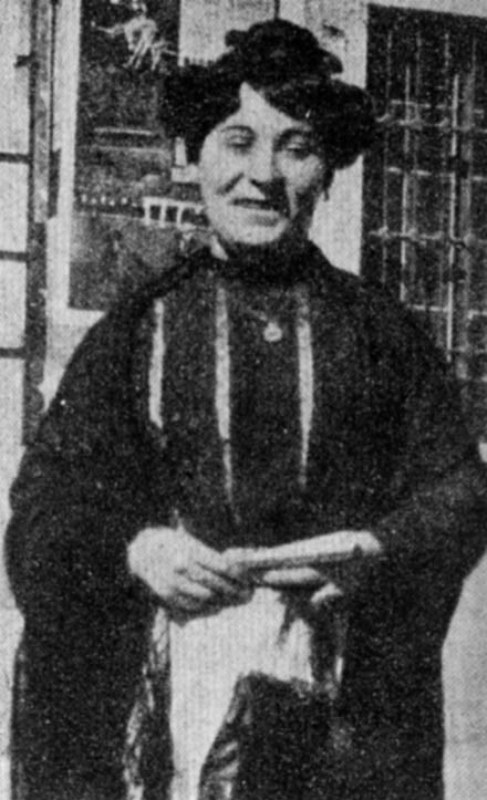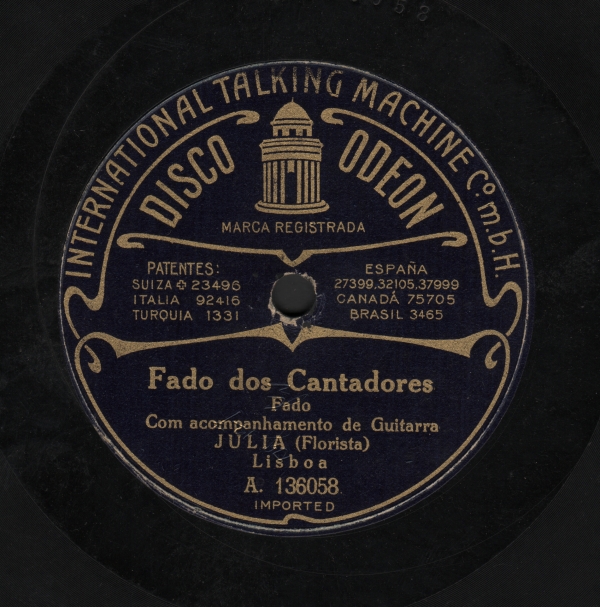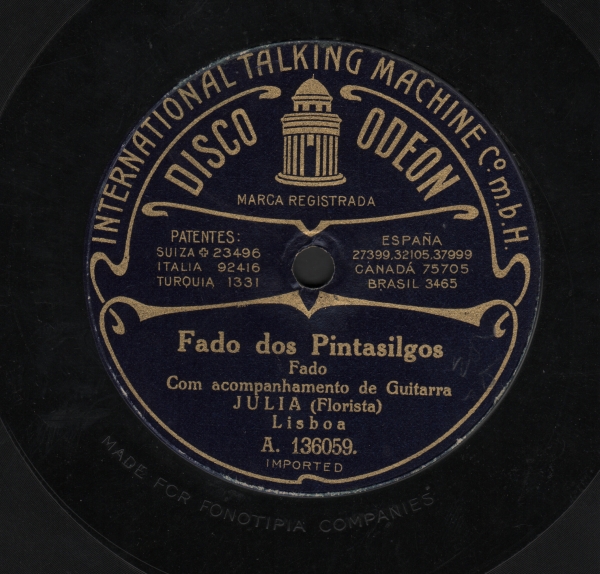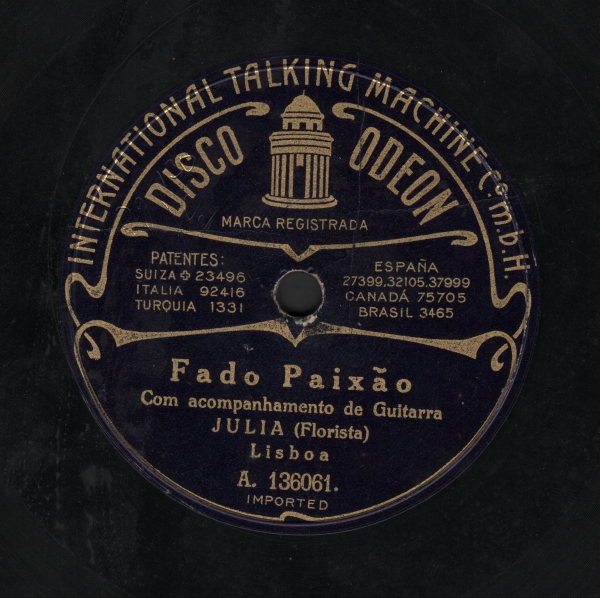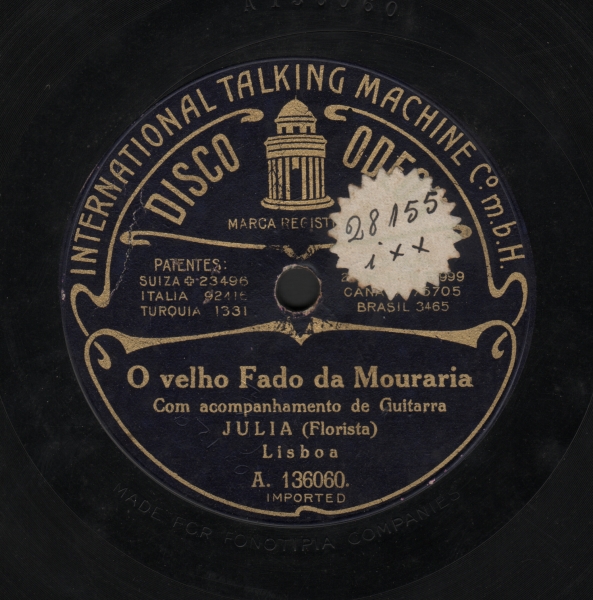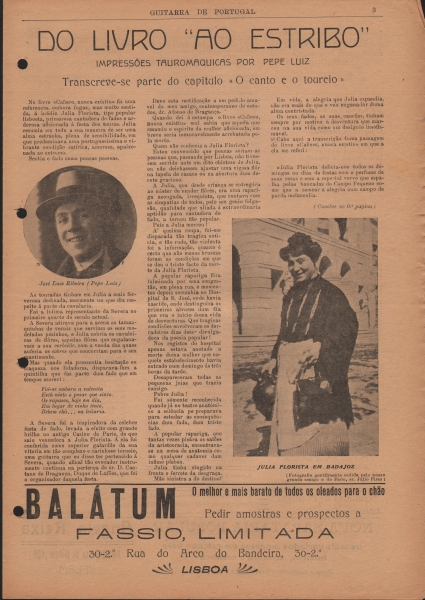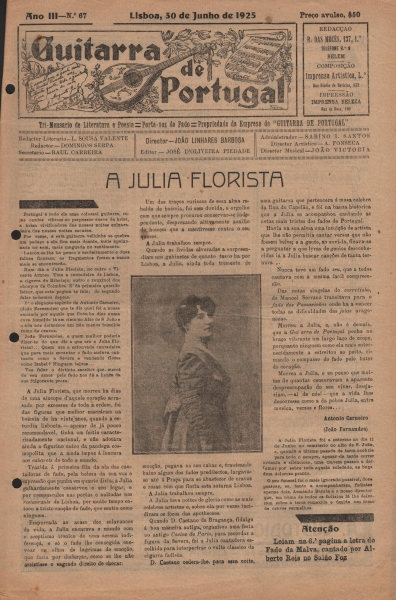Know more:
Júlia Florista
(M. 10 June, 1925)Júlia de Oliveira was born in Lisbon at Hospital de São José. She was a famous flower peddler who, without ever leaving her profession, sang the fado at night in the fado houses that existed at that time.
She was the main star in the night of the 21 November 1907, at a party in the Casino de Paris, in Avenida da Liberdade, whose impresario was the Visconde de Cabrela. This party was thrown by Dom Caetano de Bragança, Duque de Lafões, to honour the tuning-peg guitar called "Melão" (which had allegedly belonged to Severa) as a Fado icon. Illustrious personalities of that time were present at the feast, namely D. João da Câmara, Bulhão Pato, Júlio Dantas, etc.
According to Eduardo Sucena, the old fado performer Manuel Botas (once the companion of Conde de Vimioso) danced the fado and the singers were Manuel Serrano, Jose Emídio Maior, Fortunato José da Cunha, Carlos Harrington and Jaime Soares, as well as Amélia das Laranjas and Júlia Florista, accompanied by Portuguese guitar players Tomás Ribeiro, Carmo Dias, Reinaldo Varela, António Cândido Mirando, the "Neighbour" and Josué dos Santos, and by the Spanish guitar player Sales. At that party, Júlia Florista (then already a famous fado singer) sang the following fado (accompanying herself with a guitar allegedly once owned by Severa), with lyrics by Dr. Raul Ribeiro Abranches:
Há coisa que mais seduza
"The bohemian life in Lisbon at the turn of the century (1900-1925) included one fado singer (...) who should be remembered as one of the most famous of the old fado. Her name was Júlia de Oliveira, commonly known as Júlia Florista, a free-minded girl with a jesting spirit who peddled flowers since childhood. She was also a great fan of bullfighting and frequently appeared at Praça do Campo Pequeno. Leaving the most daring seducers speechless with her mordant comments, Júlia Florista never quit peddling flowers and, all though she sang all night long at taverns, restaurants and aristocrat halls, early in the morning there she was filling her basket with flowers to sell them in the streets. On bullfighting days, enthused with the art of the bullfighters, she generously distributed roses and carnations to the horsemen. A sentimental singer, with a sweet expressive voice, always accompanied herself on the guitar. She was especially fond of having “Fado da Paixão”, “Corridinho” (by Manuel Serrano) and the “Fado dos Passarinhos” in her repertoire, among many others. Bohemian life however was fatal to her. Following a heart attack in the middle of the street, they took her to the Hospital de São José were she was born and where she died on the 10 June 1925."
Source:
Eduardo Sucena, Lisboa, o Fado e os Fadistas, Lisboa, Vega, 1992.
